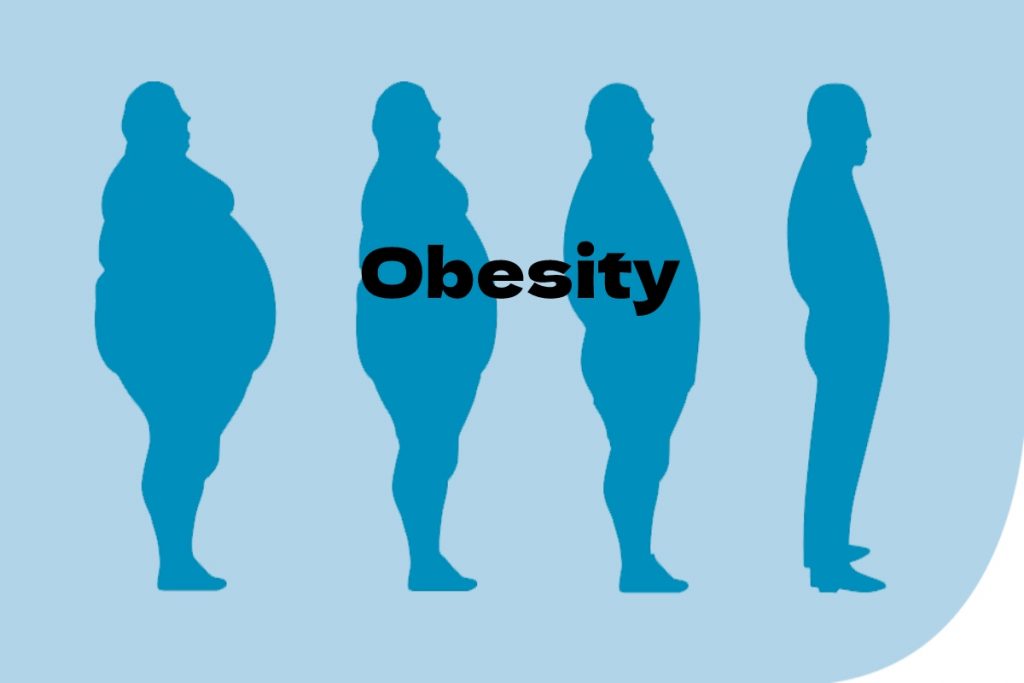Table of Contents
Definition
Obesity is defined as an abnormal or unnecessary accumulation of fat in the body. It is a significant risk factor for many chronic diseases, including diabetes, cardiovascular disease, and cancer, but what are the types of it? here’s what we’ll get to know in the following:
Types of Obesity by BMI
Experts often determine if a person is obese depending on their body mass index (BMI), which helps estimate the level of body fat based on height and weight.
The higher your BMI is over 25, the more likely a person is to develop obesity-related health problems, and BMI ranges are used to describe its types and their risk level as follows:
overweight which is pre-obesity
BMI between 25 and 29.9
Type 1 (low risk)
BMI between 30 and 34.9
Type 2 (average risk)
BMI ranges from 35 to 39.9
Type 3 (high risk)
BMI equals or exceeds 40
Obesity Associated with Lack of Movement
Lack of physical activity is another important factor responsible for it, as lack of mobility and physical activity prevents the use of the energy provided by the food eaten.
Therefore the additional energy consumed is stored in excess fat, thus creating the most prominent types of it.
Here are the most prominent examples of lack of physical activity:
Sit in the chair most of the day, because of the nature of the job.
Rely on cars instead of walking or cycling.
Watch tv, surf the internet, play computer games at rest, and don’t exercise regularly.
Gene-Related Obesity
Gene-related obesity is a type of obesity resulting from genetic traits inherited from parents, such as excessive appetite, making weight loss more difficult. Still, it certainly does not make it impossible.
There are also rare genetic conditions that can cause it, such as Prader-Willi syndrome.
Disease-Related Obesity
Sometimes some underlying conditions may contribute to overweight and obesity, which may include:
Hypothyroidism: The thyroid gland does not produce hormones sufficiently.
Cushing’s Syndrome: A rare disorder that causes excessive production of steroidal hormones.
However, if such cases are diagnosed and properly treated, they do not become a significant barrier to weight loss, and weight gain can sometimes be a side effect of quitting smoking.
Drug-Related Obesity
One type of it is obesity resulting from taking certain medications, where some medications can contribute to weight gain and obesity, most notably:
Some types of steroid medications.
Medicines for the treatment of epilepsy.
Diabetes medications.
Some medications used to treat mental diseases, such as:
Antidepressants.
Schizophrenia medications.
Associated with Depression and Anxiety
Some people with depression or anxiety may be overweight because of their health or medications, and depression and anxiety can be associating with overeating, poor food choices, and a lifestyle that is devoid of physical activity.
Over time, weight gain can eventually lead to obesity, and about 43% of adults with depression are obese, a type of it that needs intensive treatment to get rid of it.


